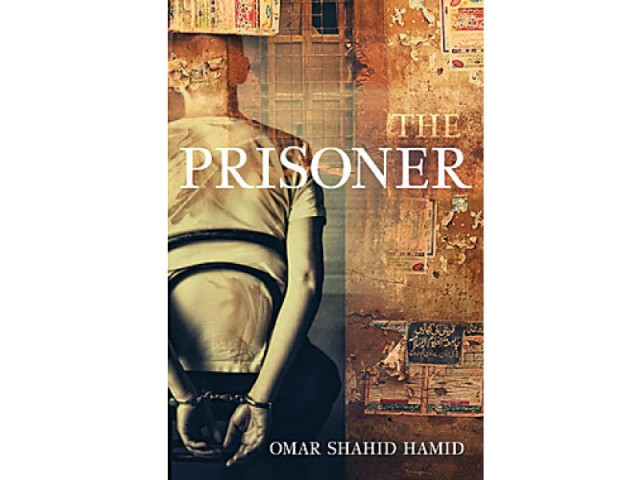The inside man: ‘In the police department, truth is stranger than fiction’
Omar Shahid Hamid’s ‘The Prisoner’ brings the police department to the limelight.

Omar Shahid Hamid’s ‘The Prisoner’ brings the police department to the limelight.
“I would say most of it actually happened,” remarked Omar Shahid Hamid serenely, speaking about the contents of his book, The Prisoner, during a reading session at The Second Floor (T2F) cafe on Wednesday.
In his 12 years of service for the Karachi Police, Hamid has seen and done it all — he has been injured in the line of duty, been the target of several attacks and was even bombed by the Taliban in 2010. Though the book’s genre is based on fiction, a dialogue between the author and the audience revealed that it is actually so much more. “There is an element of truth to it,” one of Hamid’s colleagues told The Express Tribune.
For his part, Hamid admitted that the book was based on real-life events and interesting stories from his time in the police department. “The police are one department where truth is stranger than fiction — and more interesting too.”

Asked if he was concerned how his colleagues or seniors from the police department would respond to the book, Hamid shrugged it off with a joke, “Don’t worry, they do not read much, especially in English.”
When Hamid started reading out excerpts from his book, the packed room at the T2F fell into a hushed silence as the audience listened attentively to his every word.
Asked if it was possible that Karachi would change, Hamid hoped: “I won’t say it is not possible.” A systemic and sustainable process needs to be in play to enact the change, he explained.
A law student, Mahnoor, asked Hamid if there was potential for women in the police force. Hamid admitted that the number of females in the department had increased on all ranks. Respect for women in the department will grow once people realised that all members of the force faced the same levels of risk. “I think there is tremendous potential [for females in the police],” Hamid added.

“You don’t look like a police officer,” a member of the audience pointed out. The audience laughed as Hamid answered: “I don’t know what police officers you have seen but the ones I know look like me.” According to Hamid, the “police is a reflection of the society,” so it is not surprising if a police officer looked like any other member of the society.
Hamid acknowledged that one failure of the police was not being able to communicate its side across even though they had so many stories to tell. Hamid felt it was probably because of how different writing and police work was. One has to separate themselves from police work in order to reflect on it and write about it, he said.
“I am not really a writer, in the sense that I stumbled upon this. I’m a police officer at heart.”
Speaking to The Express Tribune about his book, Hamid said: “I hope whoever reads it, enjoys it and gets a different version of the police [from it].”
Hamid’s mother-in-law, Farzana, who edited the book, said that the book was crisp and racy, “it displays the pathos of a seasoned writer.” Barrister Aamir Mansoob Qureshi, a friend of the author’s, said that Hamid even made a trip to Karachi Central Jail as part of his research. AIG Shahid Hayat Khan spoke highly of Hamid’s character, stating that “he had stood the test of time.”
When asked if there were more books to come, Hamid said that future projects would rely on the response received by this one.
Published in The Express Tribune, January 10th, 2014.



















COMMENTS
Comments are moderated and generally will be posted if they are on-topic and not abusive.
For more information, please see our Comments FAQ